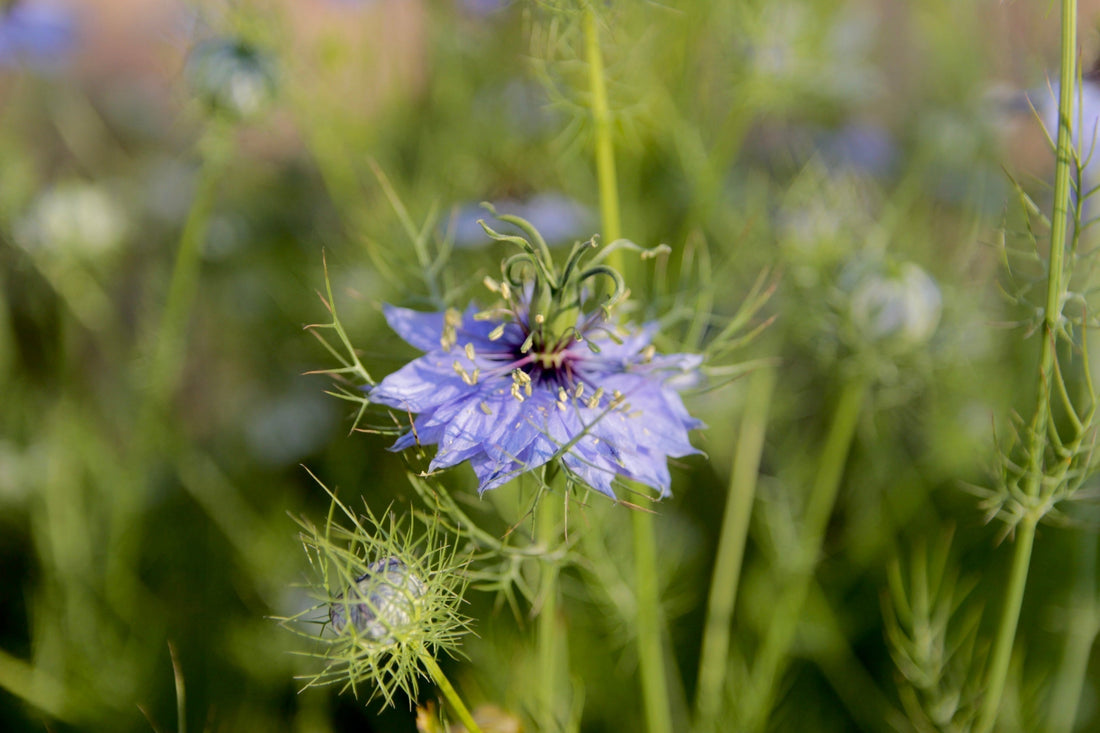Nigella: A Spice and a Superfood
Nigella, often referred to as black cumin, black seed, or by its scientific name Nigella sativa, is a small but powerful spice with a rich history of medicinal and culinary use. Native to South and Southwest Asia, this tiny black seed has been revered for centuries in traditional medicine, particularly in Middle Eastern, Indian, and African cultures. It is known for its distinctive flavor, potential health benefits, and versatility in various dishes.
Historical and Cultural Significance
Nigella has been used for thousands of years, with references dating back to ancient Egypt. It is believed that the legendary Queen Cleopatra used nigella oil for its beautifying properties, and the seeds were even found in the tomb of Pharaoh Tutankhamun. The seeds have also been mentioned in religious texts, including the Islamic tradition, where the Prophet Muhammad reportedly stated that black seed is a remedy for every disease except death.
In Ayurvedic and traditional Chinese medicine, nigella has been valued for its ability to support digestion, reduce inflammation, and promote overall well-being. It has long been used as a natural remedy for various ailments, including respiratory issues, digestive disorders, and skin conditions.
Health Benefits of Nigella
Modern scientific research has begun to uncover the remarkable health benefits of nigella, validating its traditional uses. Some of its most notable advantages include:
1. Powerful Antioxidant and Anti-Inflammatory Properties
Nigella seeds contain thymoquinone, a compound known for its potent antioxidant and anti-inflammatory effects. These properties help combat oxidative stress in the body, reducing the risk of chronic diseases such as cancer, heart disease, and neurodegenerative conditions.
2. Supports Immune Function
Due to its antimicrobial, antiviral, and antifungal properties, nigella is often used to enhance the immune system. It may help fight off infections and protect the body from harmful pathogens.
3. Aids in Digestive Health
Nigella has been traditionally used to relieve digestive discomfort, including bloating, gas, and indigestion. It can also help combat ulcers and support gut health by promoting beneficial bacteria.
4. May Support Weight Loss and Metabolism
Studies suggest that nigella may assist in weight management by improving metabolism and reducing appetite. Some research indicates that it can help regulate blood sugar levels, making it beneficial for people with diabetes.
5. Heart Health Benefits
Nigella has been shown to lower blood pressure, reduce bad cholesterol levels, and improve overall cardiovascular health. Its anti-inflammatory and antioxidant properties contribute to a healthier heart and lower the risk of heart disease.
6. Supports Skin and Hair Health
Nigella oil is widely used in skincare due to its antibacterial and anti-inflammatory effects. It can help with acne, eczema, and other skin conditions. Additionally, it is believed to strengthen hair, reduce dandruff, and promote hair growth.
Culinary Uses of Nigella
Nigella seeds have a slightly bitter, peppery taste with hints of onion, oregano, and nutmeg. They are often used in Middle Eastern, Indian, and Mediterranean cuisines. Some common ways to incorporate nigella into food include:
- As a seasoning: Sprinkled on bread, pastries, and salads for added crunch and flavor.
- In spice blends: Often included in Indian spice mixes like panch phoron.
- In curries and stews: Used to enhance depth and aroma in savory dishes.
- In pickles and chutneys: Adds a unique, slightly smoky taste.
Conclusion
Nigella is more than just a spice—it is a superfood with a long history of use in both traditional medicine and culinary traditions. Its health benefits, ranging from immune support to heart health, make it a valuable addition to any diet. Whether you choose to consume it in food, as an oil, or in supplement form, nigella remains a powerful natural remedy worth exploring.

